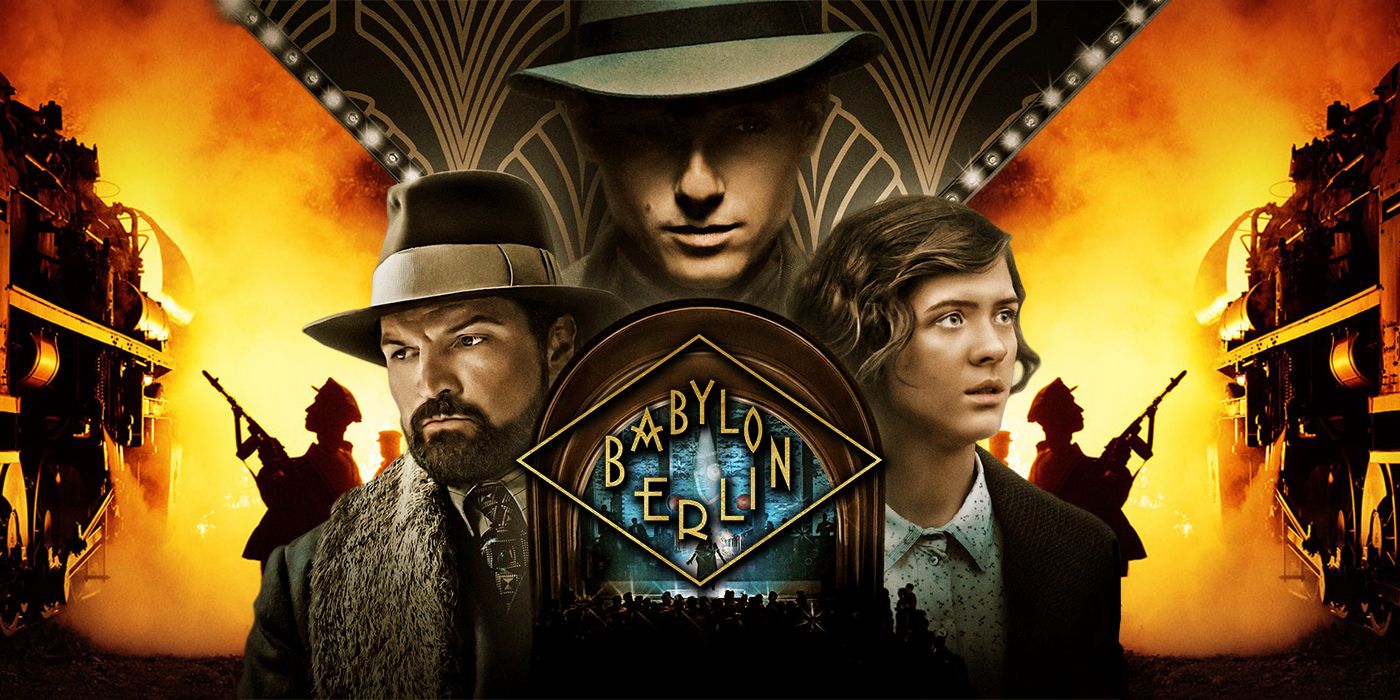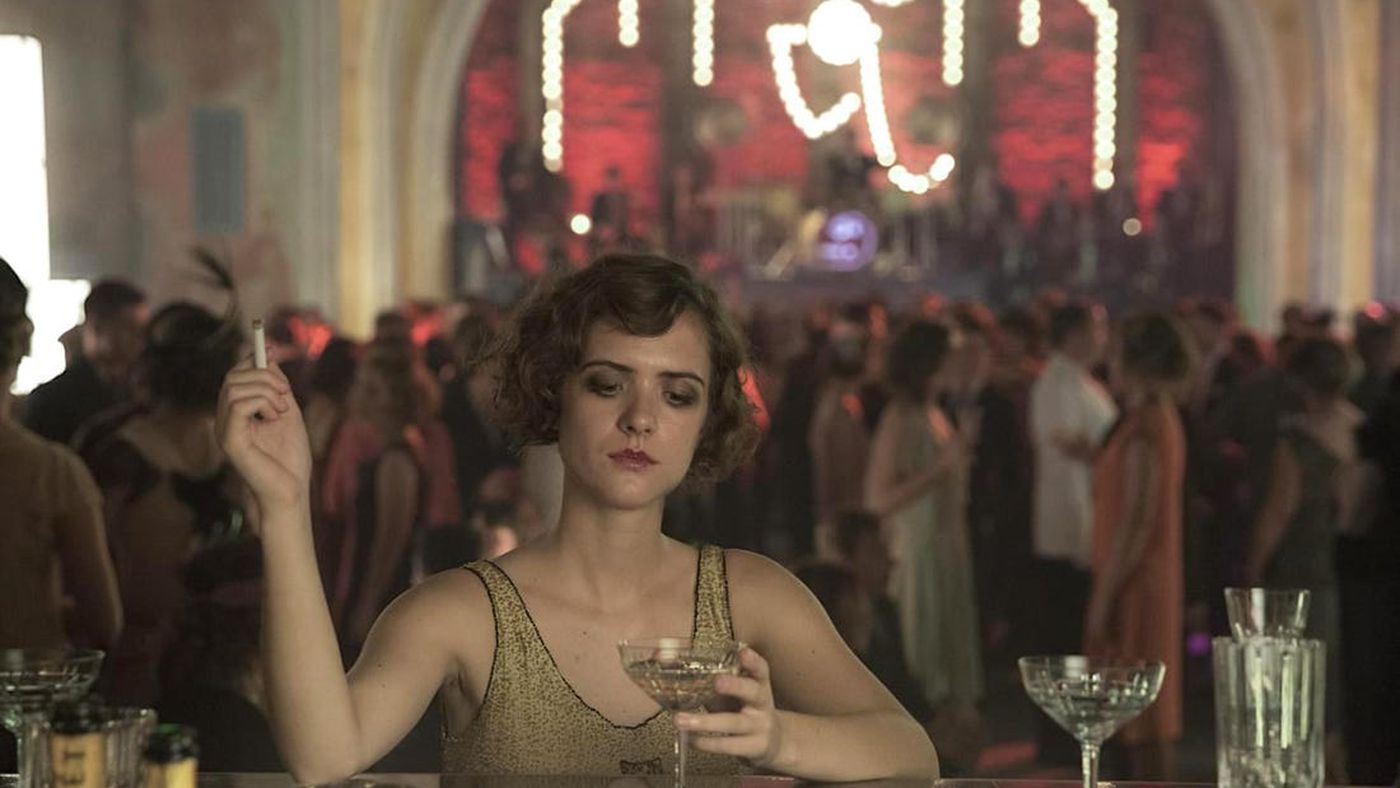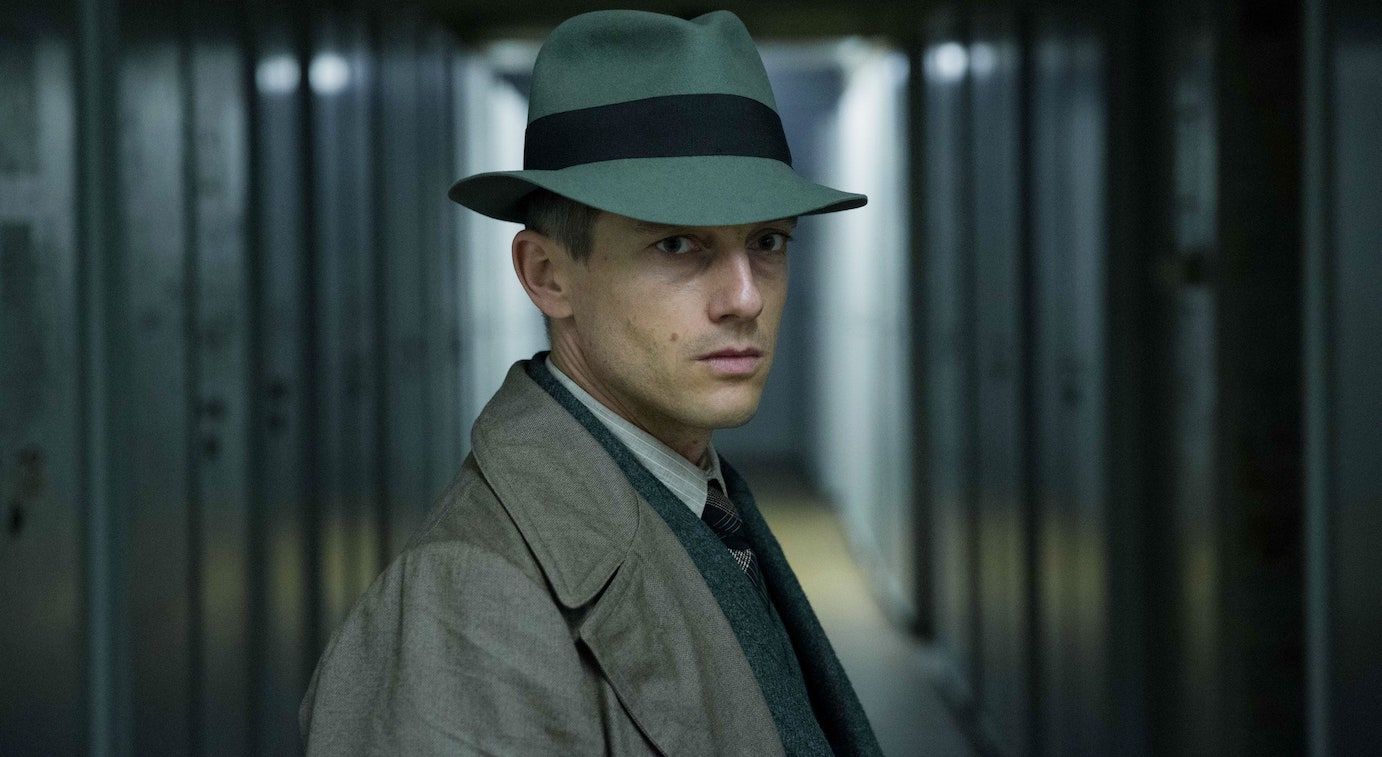Created by Tom Tykwer (Run, Lola, Run), Henk Handloegten and Achim von Borries, Babylon Berlin is far from being your run-of-the-mill crime series. Set in the early stages of the Weimar Republic’s downfall, the German mega-production tells a story about crime, trauma, lost dreams, and the Nazi’s rise to power. Using the language of noir, the show offers a unique exploration of the slow, creeping manner in which fascism takes hold of society, hiding in plain sight. With three seasons available on Netflix and a fourth one on the way, Babylon Berlin begins in 1929, months before the stock market crash that would devastate the global economy. Detective Gereon Rath (Volker Bruch) is sent to Berlin to find the origin of a sex film that is being used to blackmail a politician in Cologne. Alongside his partner, Bruno Wolter (Peter Kurth), and aspiring investigator Charlotte Ritter (Liv Lisa Fries), Gereon is dragged into a much larger conspiracy involving a train transporting an illegal poison gas and tons of gold smuggled out of the Soviet Union.
Based on the Gereon Rath series of novels by Volker Kutscher, the plot of Babylon Berlin has all the elements of a good noir thriller. It’s a tense, mysterious story, with dubious heroes that walk the fine line between the underworld and the law, and that often seem powerless to fight the corrupt structure of which they are a part of. This desolate, oppressive atmosphere engulfs both the characters and the audience: viewers are left in the dark about the dangers that lurk around the corner, looking for villains in all the wrong places. In the case of Babylon Berlin, the real danger is the growing strenght of the Nazi Party.
Though Nazi Germany is no stranger to the screen, movies and TV series usually prefer stories that take place during Hitler’s regime. Few productions take interest in the process that led to the Nazi dictatorship, and most of the ones that do are documentaries centering high-ranking officers of the Third Reich or Hitler himself. Bob Fosse’s Cabaret is a rare example of a film that focuses on the daily lives of people in the last days of the Weimar Republic, unaware of what exactly the future holds for them. The movie is not about the Nazi’s rise to power per se, and that’s what makes it such a compelling portrayal of their journey to control.
Babylon Berlin follows roughly the same guidebook. However, being a TV series, it has the luxury of taking its time before revealing what’s actually at stake. At a first glance, the Nazis are nowhere to be found in Babylon Berlin. Though anyone that knows even the slightest bit of history can tell that there is something wrong with the businessmen and old army officers that allegedly get together to hunt, Season 1 has almost no direct reference to the Nazi Party whatsoever. The sole exception is a brief mention of Hitler’s name by a secondary character. It’s all very discrete, and even if we know we should be paying attention to these elements, the show tells us “no”. It tells us to look at the communists.
In the first episodes of Babylon Berlin, we are introduced to a group of Trotskyist Russian refugees led by violinist Alexej Kardakow (Ivan Shvedoff). Kardakow is in a romantic relationship with Swetlana Sorokina (Severija Janusauskaite), a former Russian aristocrat who claims to be the owner of the gold hidden in the train. Kardakow’s plan is to use the gold to fund a guerrilla war against Stalin. Sorokina, on the other hand, has promised to share it with the owner of the Moka Efti cabaret, Armenian mobster Edgar Kasabian (Misel Maticevic). It’s this connection between the Trotskyists, Sorokina, and the mob that the audience is first told is in the center of Berlin’s criminal activity. Much like the Nazi Party, Babylon Berlin’s showrunners hold the communist in front of us like a red herring. By the time the first swastikas appear on screen, it’s already too late.
The swastikas are placed on the armbands of a group of brownshirts at a train station shouting at a politician accused of corruption. The men appear almost out of the blue following the death of Councillor Benda (Matthias Brandt). The chief of the political police, Benda, who is a Jewish, is killed by a bomb planted by his housekeeper, Greta (Leonie Benesch), who believes him to be responsible for the death of her boyfriend, a communist activist. On her way to leave Berlin, Greta finds out her boyfriend lied about his death and about his political allegiances. She’s shocked, and so are we. The murder of Councillor Benda is the show’s analogy to the Reichstag fire of 1933, an event that was instrumental to the establishment of the Nazi regime. The fire that consumed the German house of parliament is considered by many historians to be a false flag operation engineered by the Nazi Party. At the time, however, the communists were blamed, and the fire was used as an excuse to suspend civil liberties in Germany and put in place mass arrests of left-wing activists. In the show, Wendt’s (Benno Fürmann) promotion to councillor after Benda’s demise also represents a new era of oppression, albeit on a smaller scale: the new chief halts all further investigation on his predecessor’s death and proposes that the police let the Nazi brownshirts run wild.
Wendt gains prominence in the show’s third season, having been a recurring character since Season 1. From the start, we know he’s a supporter of the Black Reichswehr, the illegal parallel German army. He’s seen by Charlotte discussing compromising topics with the police chief of Berlin and a Soviet diplomat. Like the businessman Alfred Nyssen (Lars Eidinger) and General Seegers (Ernst Stötzner), there is no mystery surrounding Wendt: everyone knows what he’s up to. And that’s why it’s so disturbing that he still manages to get away with it.
The role inaction against evil plays in the ascension of authoritarian regimes is certainly a theme of Babylon Berlin. Still, a neo-noir show cannot have exclusively obvious villains as its antagonists. As is typically the case in works of the genre, the series gradually unveils the true nature of characters that seemed beyond suspicion, like Bruno and Greta’s beloved Fritz (Jacob Matschenz). As Gereon and Greta find out the ones they held dear were not who they thought they were, viewers slowly realise just how easily we let ourselves be deceived.
The extent to which the Nazis have already taken over German society is hidden from the main characters by political games as well as by the urgency of personal affairs, like a romantic relationship or the death of a parent. This also keeps them from noticing how their lives are changing and what is still coming their way. In Season 3, we see Gereon dealing with his stepson Moritz’s (Ivo Pietzcker) wishes to join the Hitler Youth, and Charlotte discovering she might be of Sinti origin. As the value of stocks rise, various characters put their money in the Berlin Stock Exchange. Unknowingly, they are all being dragged into a whirlwind of chaos and horror.
Through this manner of storytelling, Babylon Berlin shows that it understands something that many seem to ignore: fascist authoritarian regimes don’t come to power through a flashy coup d’état. Or, at least, not exclusively. Fascism gains terrain slowly, taking over the hearts and minds of those close to us, as well as less significant positions, usually while we are looking some other way. By choosing noir instead of political thriller, forefronting crime instead of war room debates, Babylon Berlin shows that the dangers of fascism are part of our everyday lives. Season 3 of Babylon Berlin ends in the immediate aftermath of the crash of 1929. In a morphine induced hallucination, Gereon sees an enormous creature moving around under the city. It’s a befitting metaphor for what’s about to come, but perhaps an even better metaphor for what came before. Like a living creature in a city’s underground, fascist ideology begins small and grows without us even noticing it. When we finally see the monster, it’s already big enough to devour us whole.



